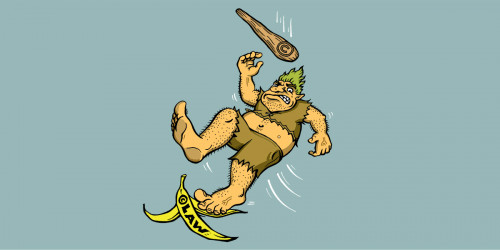While you wouldn't know it from the headlines, I think yesterday's preliminary injunction ruling [1.3mb PDF] against Google will be remembered as a little bad for Google, but a lot good for the Web. (Full disclosure: EFF filed an amicus brief supporting Google in the case.)
First, the court firmly rejected the notion that in-line linking of images directly infringes a copyright owner's public display right. That's a huge victory for the World Wide Web, which has long relied on in-line linking. Had Perfect 10 won on this point, every in-line link could potentially trigger automatic liability unless you got prior permission for the link. (Some may remember EFF's amicus brief in Kelly v. Arriba Soft, involving the Ditto.com image search engine, where we helped persuade the Ninth Circuit to withdraw some very bad language on this point.)
Second, the court rejected Perfect 10's secondary liability arguments. Basically, Perfect 10 argued that because Google "created the audience" for infringing websites, it should be held responsible for the infringements on those sites. Imagine that -- because you help someone find a site, you're held responsible for what happens on that site? That would have been a catastrophe not only for search engines, but for linking generally.
Third, the court reasoned that merely visiting a website that includes infringing material does not make you an infringer. When you visit a website, your browser makes a copy of images in its cache. According to Perfect 10, that means every person who views a webpage that includes an infringing image becomes an infringer. Yup, simply reading a webpage would make you a pirate! The court rejected that argument, pointing out that most people don't treat their browser cache as a repository for infringing goodies, and concluding that copies made automatically by your browser are probably fair uses.
So that's three major victories for the Web at large. Now what about the bad fair use ruling?
[More on that after the jump.]
Google automatically makes low-rez thumbnails of all the images it indexes. The court concluded that Google's creation and display of these thumbnails from infringing websites did not fall within fair use.
While I don't agree with the court's analysis, let's start by examining how narrow it really is. First, the court is not condemning all thumbnails created by image search engines. In fact, the court can't do that because the Ninth Circuit (whose precedents bind the district court here) has already approved that practice as a fair use in the Kelly v. Arriba Soft decision. So the court's ruling only tells us that there is a line out beyond Kelly v. Arriba Soft that search engines may not cross. Second, the court did not announce any new fair use legal principles. Instead, the court simply applied the relatively settled fair use factors to Google's Image Search thumbnails.
So the fair use ruling really boils down to one fact-bound question: what distinguishes Google's thumbnails from Ditto's (the search engine in Kelly v. Arriba Soft)? Two things, according to the court: (1) Google's ability to share ad revenues from the infringing sites, thanks to AdSense, and (2) Perfect 10's deal with Fonestarz to provide low-rez images for cellphones. As for AdSense, I don't think Google's use should be any less fair just because it is more clever at monetizing it than Ditto was. As for Fonestarz, I don't think the court was adequately sensitive to indications that the arrangement was a sham concocted for this litigation (the court notes that the license was not entered into until after Perfect 10 sued Google). Finally, I think the court did not adequately weigh the public interest in image search engines -- allowing a few copyright owners like Perfect 10 to "hold up" search engines is likely to create windfalls for a few, at the expense of the general interest of both copyright owners and the public in improved access to visual information.
Finally, it is important to remember that the court has not yet imposed the injunction, leaving it to Google and Perfect 10 to work out the details. Much will turn on just how much and what kind of notice Perfect 10 must provide to Google before thumbnails have to be removed from Image Search results. In any event, I think it's unlikely that the judge will impose an injunction that changes Google's general Image Search practices.
Of course, an appeal is likely, too.








